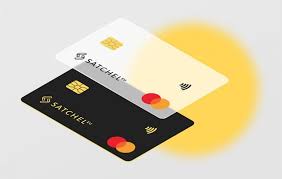Online banking, also known as internet banking or e-banking, has significantly transformed the way people manage their finances in the digital age. With its wide range of services, user-friendly interfaces, and enhanced security measures, online banking has become the go-to solution for millions of individuals and businesses worldwide. This article explores the many benefits of online banking, highlighting its convenience, security, and financial advantages. Additionally, we will address common questions related to online banking to provide a comprehensive understanding of its value.
1. Introduction
In the last few decades, the rise of the internet has revolutionized many aspects of our daily lives, and banking is no exception. The shift from traditional banking methods to online banking has been driven by both consumer demand and advancements in technology. Online banking enables individuals to perform a wide array of financial transactions without needing to visit a physical bank branch. This shift has not only made banking easier but has also brought about significant improvements in security, efficiency, and convenience.
The importance of online banking continues to grow, especially as mobile banking apps become more popular. With access to these services via smartphones and computers, managing money has become more seamless and integrated into daily routines.
2. The Convenience of Online Banking
24/7 Access
One of the primary benefits of online banking is the ability to access your account anytime, anywhere. Traditional bank hours are limited, but online banking offers 24/7 access to your accounts. Whether it’s early in the morning, late at night, or during holidays, you can monitor your balance, transfer funds, or even pay bills. This accessibility eliminates the need to plan banking activities around limited business hours, which is especially beneficial for people with busy schedules.
Accessibility from Anywhere
As long as you have an internet connection, online banking allows you to access your accounts from virtually anywhere in the world. Whether you are traveling for business or leisure, you can securely manage your finances without being tied to a physical location. This flexibility ensures that your financial management is never interrupted, no matter where life takes you.
Faster Transactions
Online banking provides instant processing of transactions. When you transfer money or pay bills, the process is typically faster than in-person transactions at a physical bank branch. With features like real-time fund transfers and immediate bill payment confirmations, online banking ensures that you can complete transactions quickly, reducing delays associated with traditional banking methods.
3. Enhanced Security Features
While online banking offers a wealth of conveniences, one concern that often arises is security. However, online banking platforms have implemented robust security features to protect users from potential threats.
Two-Factor Authentication
To further secure online banking accounts, many banks have adopted two-factor authentication (2FA). This security measure requires users to provide two forms of identification before they can access their accounts. Typically, 2FA combines something you know (your password) with something you have (such as a code sent to your phone). This added layer of security reduces the likelihood of unauthorized access.
Encryption Technology
Encryption is another key security feature that ensures your data remains safe when using online banking. Bank websites and apps employ advanced encryption technologies that convert your personal information into unreadable data, making it nearly impossible for hackers to intercept and use your data. The use of SSL (Secure Sockets Layer) certificates ensures that any data transmitted between your device and the bank’s servers is encrypted and secure.
Fraud Detection
Online banking platforms use sophisticated fraud detection systems to monitor and detect suspicious activities on accounts. These systems can alert you to any unusual transactions, such as withdrawals that are larger than usual or transactions occurring in different geographical locations. In case of any potential fraud, you are often notified immediately, giving you a chance to react swiftly and secure your account.
Secure Payments
When making payments or conducting financial transactions online, banks use secure payment gateways to ensure that the transaction is completed safely. These systems utilize encryption, tokenization, and multi-layered security to protect sensitive financial information, reducing the risk of fraud.
4. Cost-Effective Banking
Lower Fees
Traditional banks often charge fees for various services, such as maintaining an account, withdrawing cash, or processing transfers. Online banking, however, tends to have lower overhead costs because it does not require the same infrastructure as brick-and-mortar banks. As a result, many online banks pass these savings onto their customers by offering lower fees for account maintenance, wire transfers, and even ATM withdrawals.
Reduced Operational Costs
For financial institutions, online banking reduces the need for physical branches and employees. This translates to significant cost savings for the bank, which in turn benefits customers with lower fees and better interest rates on savings accounts. For customers, online banking eliminates the need for paper statements and postage, making it a more eco-friendly and economical choice.
Budgeting Tools
Many online banking platforms provide budgeting and financial management tools to help you track your spending, set financial goals, and analyze your account activity. These tools are often free of charge and help users save money by gaining better control over their finances.
5. Time-Saving Benefits
Bill Payments
Online banking simplifies the process of paying bills. With just a few clicks, you can pay your utility bills, credit card payments, or rent directly from your bank account. Most platforms even allow you to set up automatic bill payments, ensuring that you never miss a due date and avoid late fees.
Fund Transfers
Transferring money between accounts or to other individuals is quick and straightforward with online banking. Whether you’re sending money to a friend or transferring funds from a savings account to a checking account, the process is completed instantly, saving you time compared to traditional banking methods.
Account Management
Managing your finances online is faster and more efficient. You can monitor your account balance, track your spending, and view transaction history in real-time. This provides immediate visibility into your financial situation, empowering you to make informed decisions quickly.
6. Environmental Impact of Online Banking
In addition to personal benefits, online banking also contributes to environmental sustainability. By reducing the need for physical paperwork, ATM receipts, and branch visits, online banking helps decrease paper waste. Banks themselves also reduce their environmental footprint by closing physical branches and reducing energy consumption associated with traditional banking methods.
7. Increased Control and Transparency
Real-Time Monitoring
Online banking allows you to monitor your accounts in real-time, providing greater transparency and control over your finances. Whether you’re tracking your spending, verifying deposits, or checking the status of a transfer, you always have up-to-date information at your fingertips. This immediacy makes it easier to manage your money and make informed financial decisions.
Customizable Alerts
Most online banking platforms allow you to set up customized alerts for various activities, such as low balances, large transactions, or bill due dates. These alerts can be sent via email or text message, keeping you informed about your financial activity without needing to constantly check your account.
Instant Account Access
With online banking, your accounts are accessible at all times, and you can quickly view account balances, recent transactions, and more. This eliminates the delays that often occur with paper statements or waiting for customer service.
8. Online Banking for Businesses
Streamlined Operations
Online banking offers numerous advantages for businesses, particularly in terms of streamlining financial operations. Business owners can access their accounts at any time, initiate payroll, make vendor payments, and track cash flow in real-time.
Cash Flow Management
Effective cash flow management is vital for businesses. Online banking provides businesses with tools to manage their cash flow more efficiently, such as detailed transaction histories, forecasting tools, and the ability to monitor incoming and outgoing payments.
Business Financial Tools
Many online banks offer specialized tools designed for business owners, including invoicing software, tax management resources, and the ability to integrate with accounting software. These features help businesses stay organized and make financial management easier.
9. Accessibility for People with Disabilities
Online banking can be especially beneficial for individuals with disabilities, as it offers a more accessible way to manage finances. Many online banking platforms have incorporated features like voice navigation, larger text options, and compatibility with screen readers, making it easier for people with visual impairments or motor disabilities to use banking services.
10. Future Trends in Online Banking
The future of online banking promises even more convenience and innovation. As technology continues to evolve, we can expect enhanced artificial intelligence (AI) integration, more personalized banking experiences, further advancements in security, and the increasing use of blockchain technology. These developments will continue to make online banking even more secure, efficient, and customer-friendly.
11. FAQs (Frequently Asked Questions)
1. Is online banking safe?
Yes, online banking is generally very secure, thanks to encryption technology, two-factor authentication, and fraud detection systems. However, it’s important to follow best practices, such as using strong passwords and monitoring your account for unusual activities.
2. What are the common fees associated with online banking?
Fees vary depending on the bank and account type. Some online banks charge fees for certain services, such as wire transfers or ATM withdrawals, while others offer fee-free banking. Always check the bank’s fee schedule before opening an account.
3. Can I access my online banking account from my mobile phone?
Yes, most online banks offer mobile apps that allow you to manage your account on the go. These apps offer features similar to those on the website, such as bill payment, fund transfers, and balance monitoring.
4. How do I set up online banking?
To set up online banking, visit your bank’s website or download its mobile app, then follow the instructions to create an account. You’ll typically need your account number and other identifying information to complete the registration process.
5. What should I do if I suspect fraud on my online banking account?
If you notice any suspicious activity on your online banking account, immediately report it to your bank’s customer service or fraud department. They will guide you through the necessary steps to secure your account and investigate the issue.
12. Conclusion
Online banking offers unmatched convenience, security, and flexibility for managing your personal or business finances. With 24/7 access, robust security features, and cost-saving advantages, it’s no surprise that more people are embracing online banking as their primary method of financial management. As technology continues to improve, online banking will only become more efficient, accessible, and secure, providing users with even more ways to manage their money with ease.

